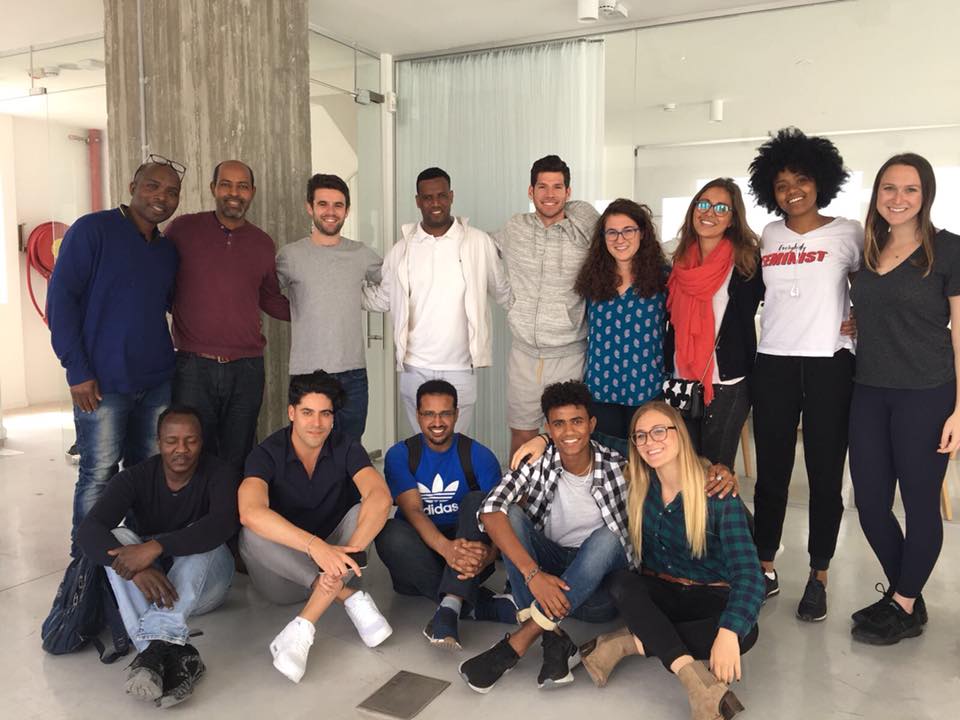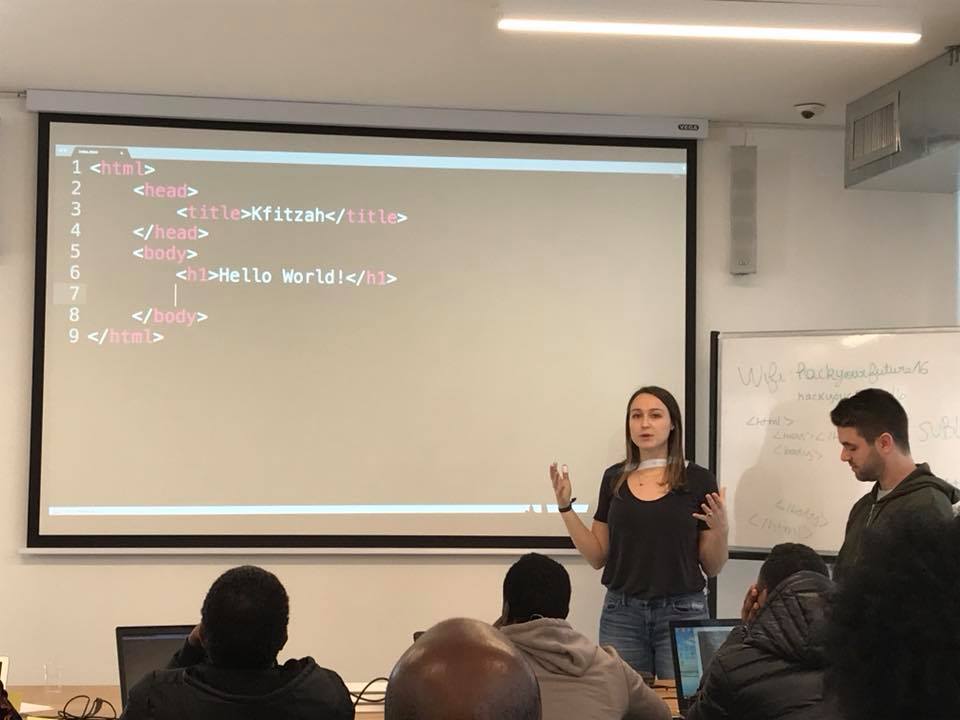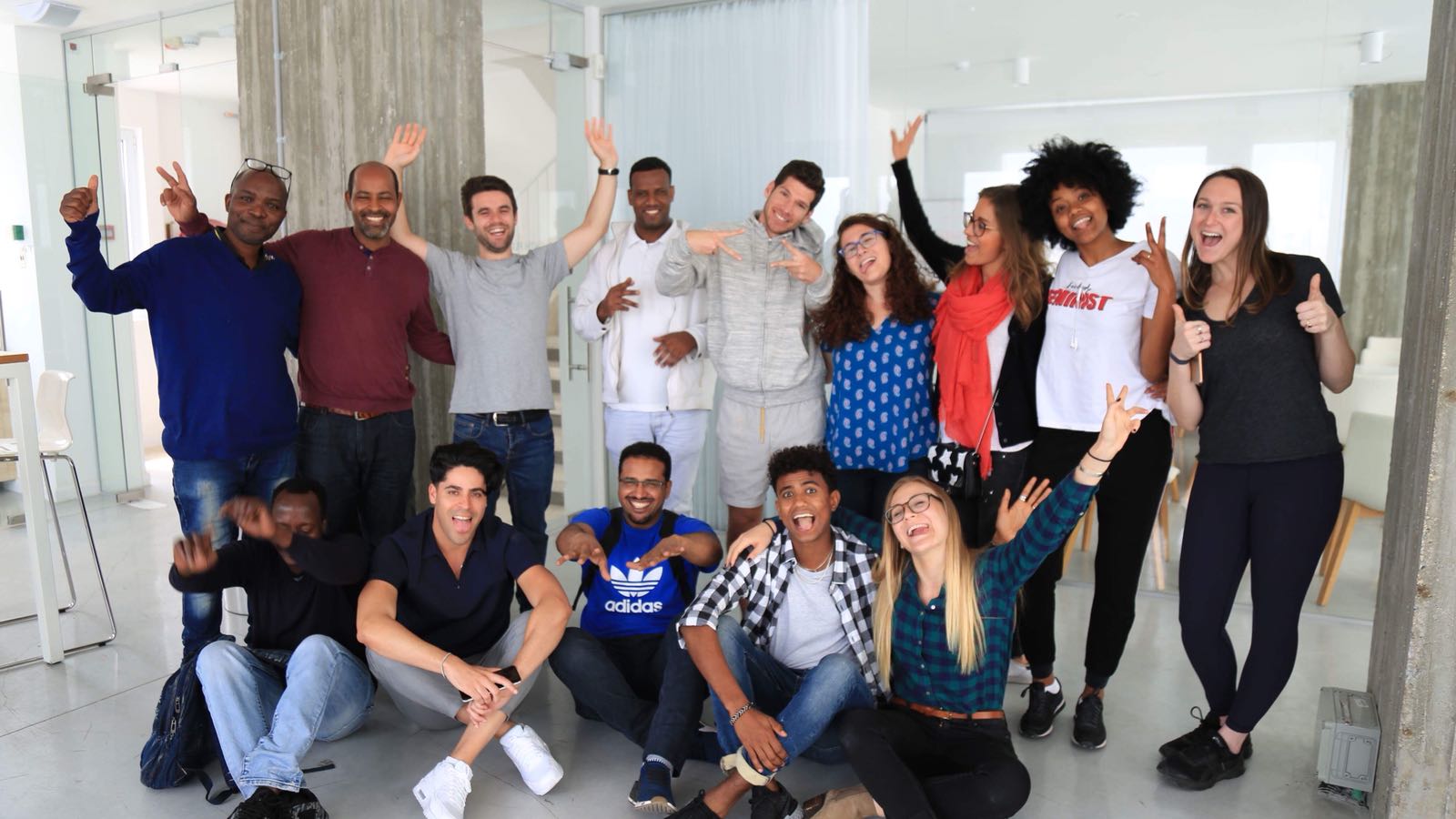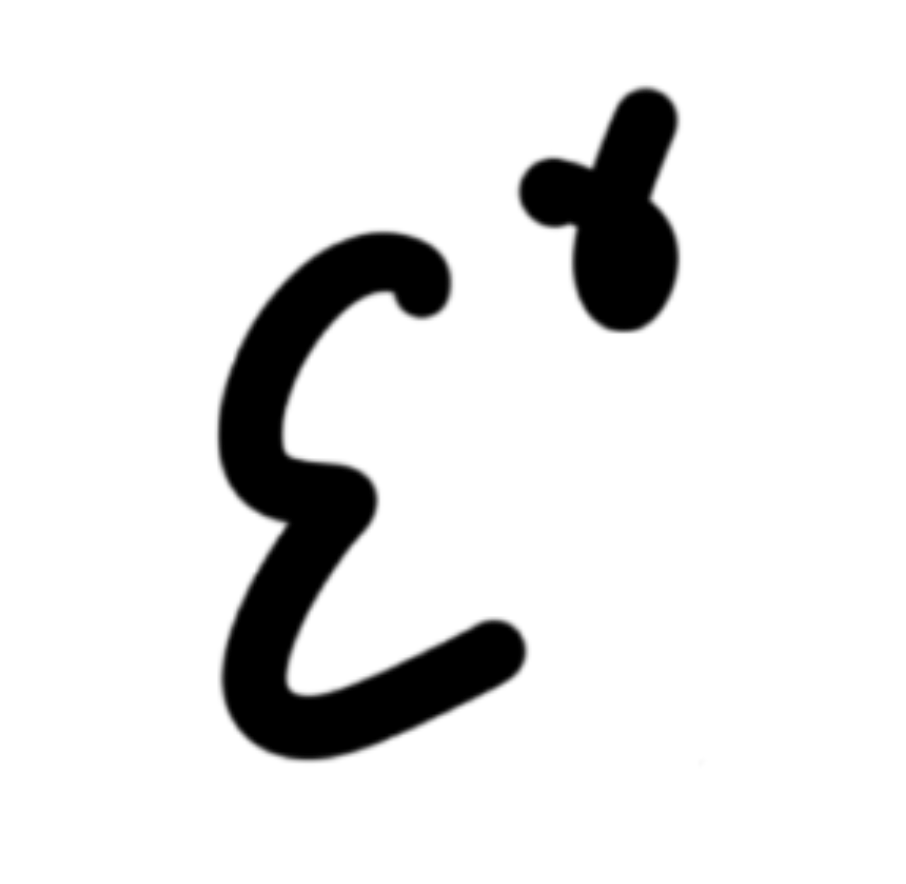Kfitzah - Coding Bootamp
Overview
An 8-week long coding bootcamp course in collaboration with the African Refugee Development Center (ARDC) in Israel.
Project Type
Voluntary, outside of work
Roles
Teacher
Curriculum designer
Founding team member
Timeline
Started planning August 2017
Bootcamp held between February-April 2018
Team
Eden A, Allie V, Valentine G, Arie B, Max P, Joachim H, Talia H

Background
From 2006-2012, a large influx of African asylum seekers arrived in Israel, with many having been trafficked through the Sinai Peninsula.
Around 35,000 asylum seekers from Africa live in Israel as of October 2018. Of those, more than 70% fled from Eritrea and nearly 20% came from Sudan (source).
Many of these people have been living in Israel for more than 10 years.
Problem
Many of these refugees and asylum seekers live in southern Tel Aviv. We are living side-by-side, yet we aren't working side-by-side. Why?
Process
After completing Israel Tech Challenge's (ITC) coding bootcamp, a group of us got together and wondered how we could give back.
We met with the leadership team of ARDC to understand their community's needs and see if there was a way we could help. Through these discussions, we learned that there are some high achieving, tech-minded individuals in the community who were eager to learn coding.
Kfitzah ("jump" in Hebrew) was an initiative to empower our local, underrepresented communities in Tel Aviv with basic programming skills.
To get started, the group split in half to focus our efforts on both recruiting and screening candidates, and developing the curriculum.
Curriculum Design
Starting from 0
Arie and I worked on designing the curriculum. After understanding the needs from ARDC, we discussed and worked on setting realistic expectations for an 8-week (24 hours total) program. I reached out to the lead course instructor of our coding bootcamp who had developed the course content himself. We brainstormed the course content together taking into account the current level of the participants' knowledge and the amount of material we could realistically cover in 8 weeks.
We debated between two course focuses: 1) basics of web development, or 2) basics of programming.
After discussing with ARDC, we determined that it would be most useful to the participants to have basic web development knowledge so that they can walk away from the course having gained immediate, tangible skills like being able to create their own websites.

Check out the intro lecture slides:
Participant Selection
Interviews
The rest of the group focused on interviewing candidates to determine their eligibility.
We all brainstormed the types of questions to ask including both HR-type questions and technical questions. For example:
- Tell me about a time you taught yourself something: what did you teach yourself? What were the steps you took to learn? What was your biggest take away?
- Without writing anything, describe how you'd convert a word from selector-case to camelCase (e.g. from “background-color” to “backgroundColor”, ”blue" to "Blue”)
Another factor that was taken into consideration was their level of English and previous experience using computers.
Mentor Match
We also sought out mentors and matched them with each participant. The mentors helped the students with the assignments and guided them during the week in between their classes with us.
Outcome
Sustainable Change
Two of our students received scholarships to attend coding bootcamps in Tel Aviv after completing our course.

The success of Kfitzah led ARDC to adapt and build out this program. They now offer it as one of their core services: ReStart.
The first year of ReStart helped 32 graduates. From the program's website:
